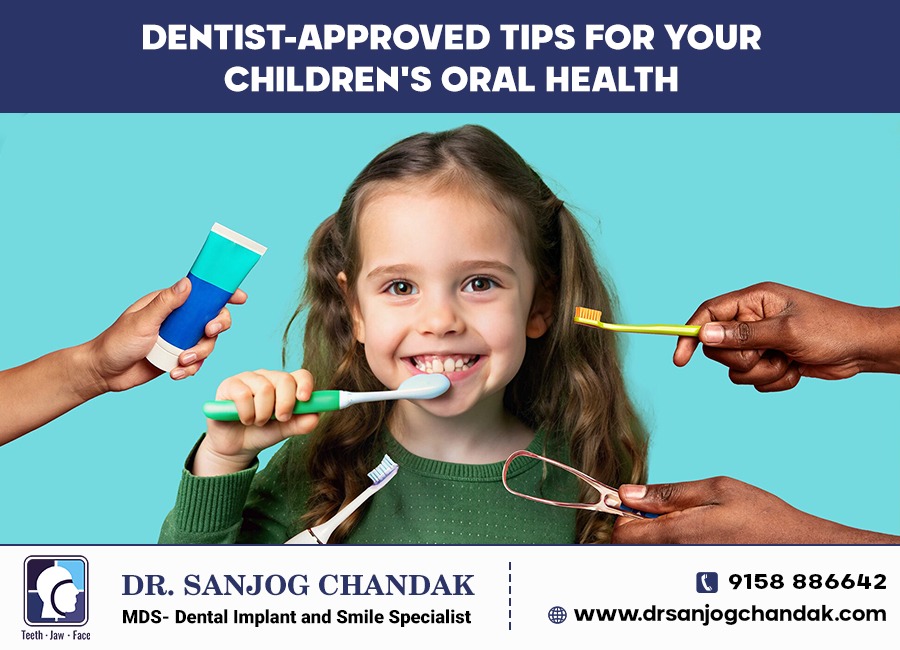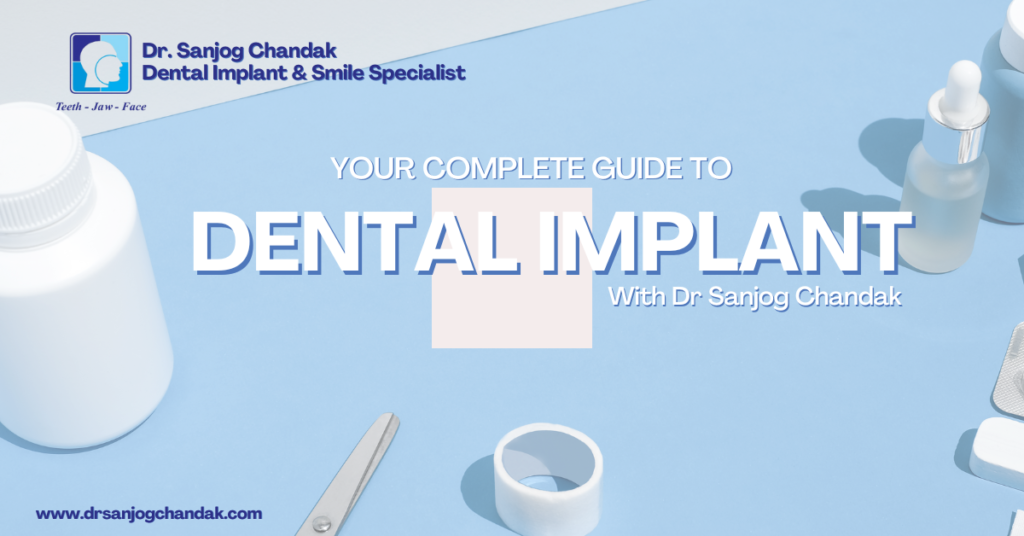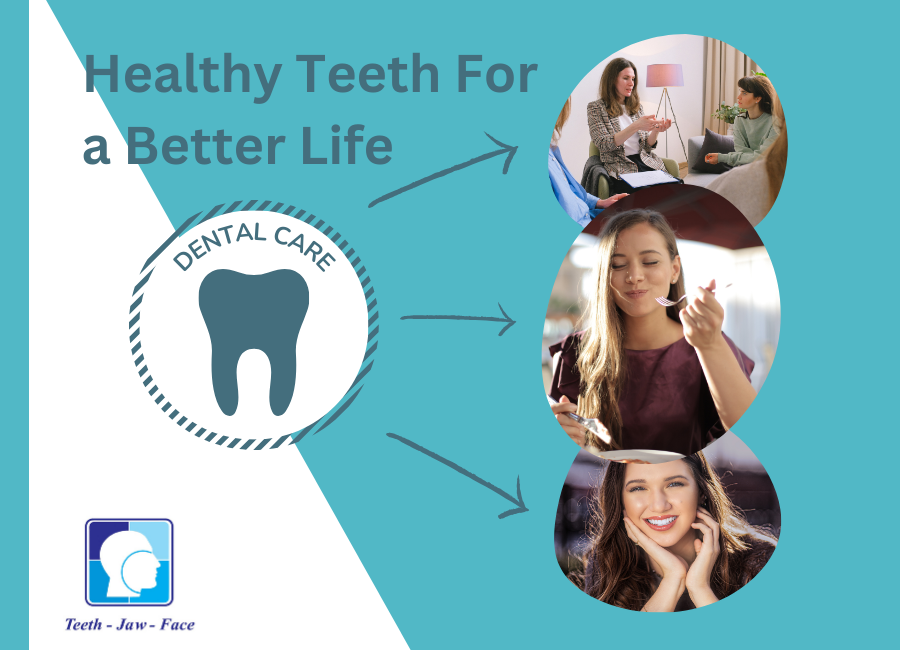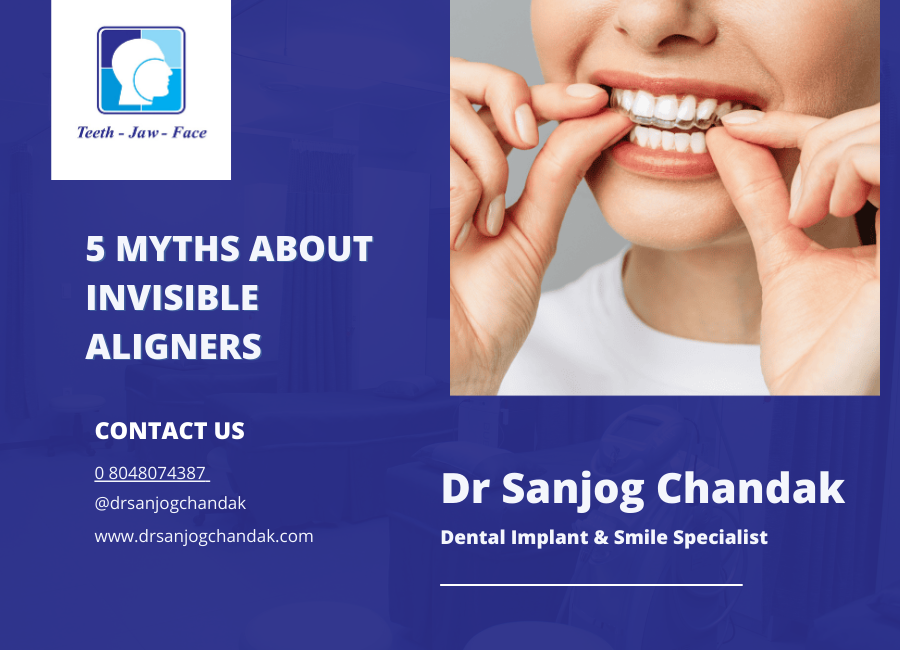As parents, we all want the best for our children, and their health is always at the top of the list. But how often do we think about our children’s oral health?
Many parents don’t realize that small habits like brushing incorrectly or eating too much sugar can lead to big dental problems down the line. Cavities, gum issues, or even misaligned teeth can cause pain and affect your child’s confidence.
While regular visits to a dentist are always recommended, taking the right steps at home can save you a lot of stress and keep your child’s smile bright.
According to Dr Sanjog Chandak (MDS – Dental Implant & Smile Specialist), a dentist in Congress Nagar, Nagpur, creating a healthy foundation for your child’s teeth early on can prevent major dental problems.
Let’s explore some easy yet effective ways to ensure your child’s oral health stays in top shape—no frequent dentist visits are needed!
Why You Should Pay Attention to Your Child’s Oral Health
It’s easy to think that baby teeth aren’t that important because they’ll fall out anyway. But did you know that those little teeth play a crucial role in your child’s development? They help with chewing, speaking, and guiding permanent teeth into the right position.
Ignoring dental care in the early years can lead to painful cavities, gum infections, or even orthodontic problems later. By keeping up with simple habits at home, you can ensure your child has a strong start with their oral health.

Milestones to Watch as Your Child Grows
Every child’s dental journey is unique, but here are some key milestones:
- Teething: The first tooth usually pops up around six months. Teething can be uncomfortable, but you can ease the pain with a cold teething ring or by gently massaging their gums.
- Losing Baby Teeth: Kids start losing their baby teeth around age six, and this process continues until they’re about twelve.
Baby teeth act as placeholders for permanent teeth. If they’re lost too early due to decay, it can affect how adult teeth come in, potentially leading to alignment issues that require braces.
How to Build Healthy Oral Habits at Home
A consistent dental routine can work wonders for your child’s oral health. Here’s how you can start at each stage:
1. Start Early
Even before your baby has teeth, clean their gums with a damp cloth after feeding. Once that first tooth shows up, switch to a baby toothbrush with a smear of fluoride toothpaste.
2. Make Brushing Fun
Toddlers can be fussy about brushing their teeth, but turning it into a game can help. Let them pick their toothbrush or use songs to make it enjoyable. You can also brush along with them before bed, which will strengthen your bond. Supervise brushing until they’re old enough to do it properly—usually by age 6 or 7.
3. Don’t Forget Flossing
As soon as two teeth touch, it’s time to introduce flossing. It might seem tricky, but showing them how to do it early sets them up for success.
Creating a brushing schedule with rewards like stickers or small treats to encourage good habits. To learn why flossing is important, watch the video on Instagram.
The Role of Nutrition in Oral Health
Did you know that what your child eats can directly impact their teeth? A healthy diet is key to preventing cavities and promoting strong, healthy enamel.
- Good Choices: Foods rich in calcium, such as milk, cheese, and yogurt, help strengthen teeth. Crunchy fruits and vegetables, such as apples and carrots, can also clean teeth naturally.
- Avoid: Sugary snacks, sticky candies, and sodas. These create the perfect environment for bacteria that cause cavities.
Encouraging water as their go-to drink, especially after meals, helps wash away food particles and keeps their mouth healthy.

Habits That Can Harm Your Child’s Teeth
Children often pick up habits that seem harmless but can lead to dental issues over time. Here are a few to watch out for:
- Thumb-Sucking: While it’s normal for young children, prolonged thumb-sucking can affect how their teeth align.
- Teeth Grinding: Some kids grind their teeth while sleeping, which can wear down enamel and cause jaw pain.
- Improper Brushing: Skipping brushing or not cleaning properly can lead to plaque buildup and cavities.
If you notice these habits, it’s a good idea to consult Dr Sanjog Chandak for advice. We can guide you on how to address these behaviours before they lead to bigger problems.
Do You Still Need a Dentist?
Even if you follow all the right tips, regular dental check-ups are essential. Why? Because your dentist can catch problems you might not see. Dr Chandak recommends bringing your child in for their first visit by their first birthday or within six months of their first tooth erupting. Regular check-ups every six months ensure:
- Professional cleaning to remove plaque and tartar.
- Early detection of cavities or alignment issues.
- Tips tailored to your child’s specific needs.
A Final Word
Your child’s oral health journey begins at home, with the habits and care you provide. By following these simple tips, you can minimize the chances of cavities, gum issues, or other dental problems—and make those visits to the dentist much less frequent.
Still, nothing beats professional advice and care. For dental consultation connect with us today
Want to know how the latest dental technology like the OPG X-ray machine assures dental treatment success? Read the blog here.




